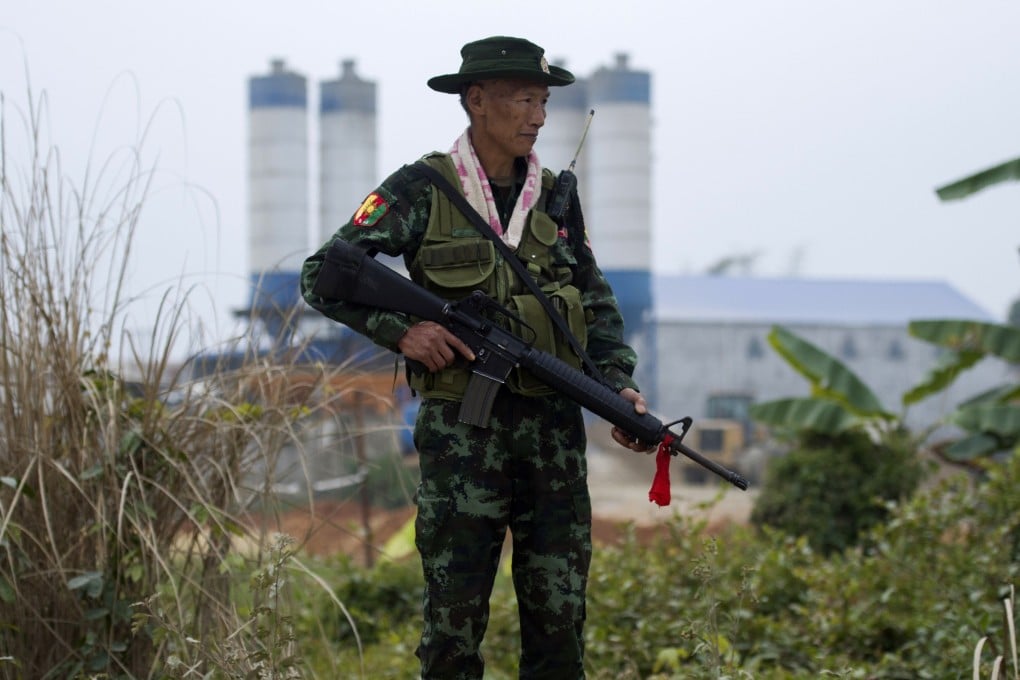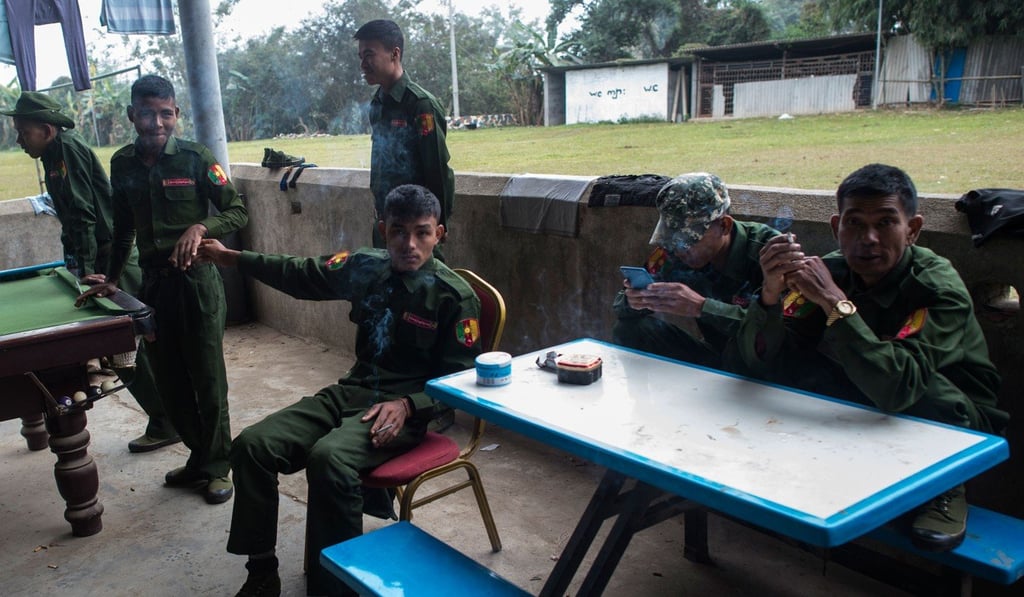Advertisement
On Myanmar-China border, the town of Muse overflows with guns, drugs and cash
- Myanmar is now one of the world’s largest sources of meth, with precursor chemicals from China feeding labs peppering the restive eastern borderlands
Reading Time:3 minutes
Why you can trust SCMP
0

With tinted windows and their militia name emblazoned on the side of their Ford truck, “Pan Say” fighters cruise the sleazy streets of Muse, Myanmar’s main gateway to China and awash with weapons and cash from casinos, drugs and sex.
Ten armed groups run the Shan State border town of Muse, which is separated by a shallow river from the gleaming towers of its Chinese counterpart, Ruili. All are under the tutelage of the same patron: Myanmar’s army.
China and Myanmar have an agreement not to station troops along their border. Instead, Myanmar’s army uses the militias as proxies in a long-running conflict between the central state and ethnic rebel groups who operate in the area, including the Kachin Independence Army (KIA) and Taaung National Liberation Army (TNLA).

A fiendishly complicated, decades-old struggle for money, trade, resources and ethnic identity is playing out in Muse.
The Pan Say militia gave a rare snapshot of the shifting alliances and rivalries which have defined Myanmar’s frontier areas since its independence in 1948.
Advertisement